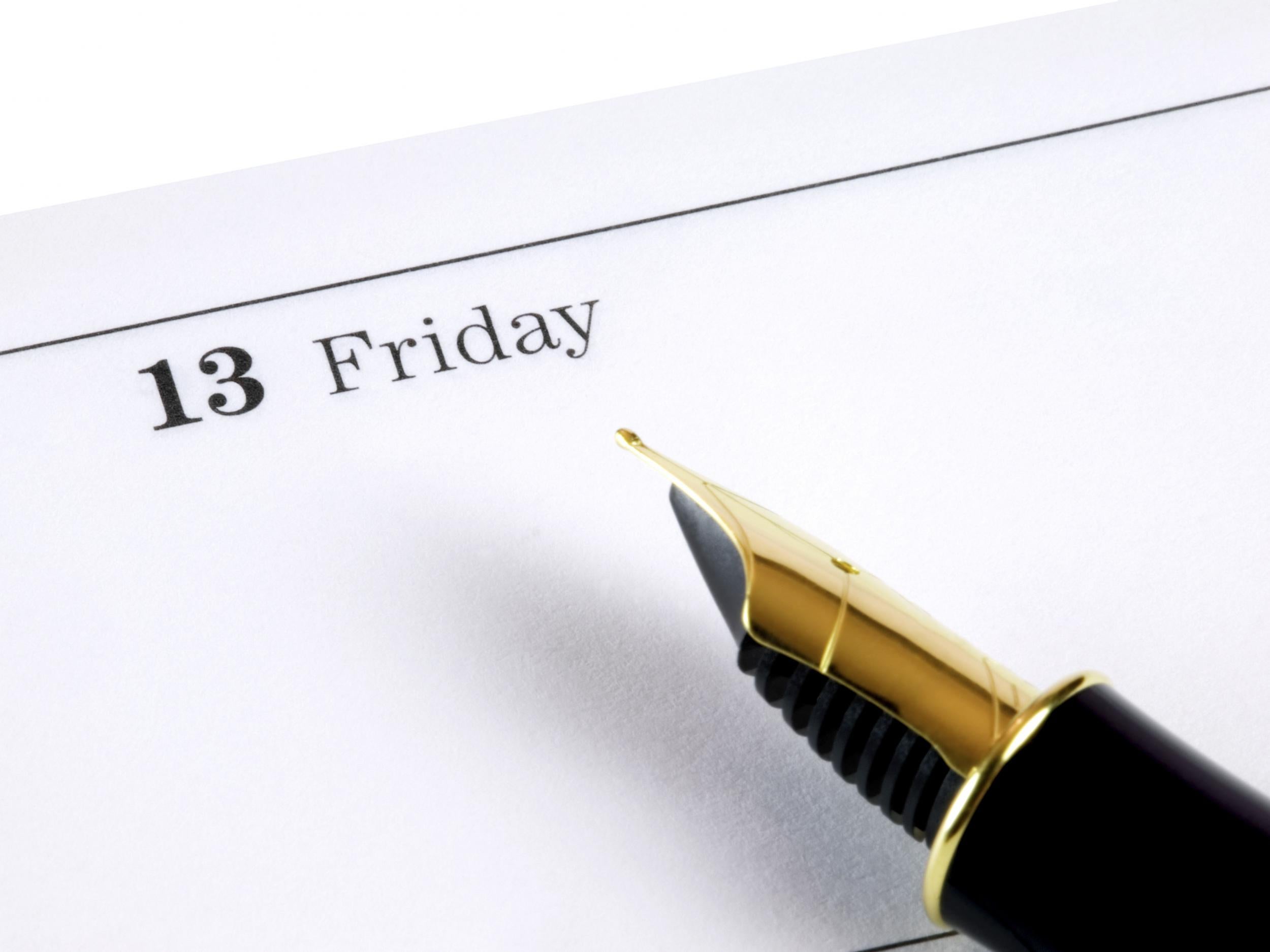Friday the 13th: Is it really unlucky and why is it feared?
Today is the third and final Friday the 13th of 2015

Your support helps us to tell the story
From reproductive rights to climate change to Big Tech, The Independent is on the ground when the story is developing. Whether it's investigating the financials of Elon Musk's pro-Trump PAC or producing our latest documentary, 'The A Word', which shines a light on the American women fighting for reproductive rights, we know how important it is to parse out the facts from the messaging.
At such a critical moment in US history, we need reporters on the ground. Your donation allows us to keep sending journalists to speak to both sides of the story.
The Independent is trusted by Americans across the entire political spectrum. And unlike many other quality news outlets, we choose not to lock Americans out of our reporting and analysis with paywalls. We believe quality journalism should be available to everyone, paid for by those who can afford it.
Your support makes all the difference.If you suffer from friggatriskaidekaphobia, otherwise known as paraskevidekatriaphobia, today isn’t a great day for you. It’s Friday the 13th, and the phobia is all about a blinding fear of this day — however irrational it may seem.
Here are some Friday the 13th facts:
• A lot of people fear Friday the 13th. A 2004 National Geographic article quoted Donald Dossey, founder of the Stress Management Centre and Phobia Institute in North Carolina, as saying up to 21 million people may suffer from the phobia, exhibiting symptoms that can range from mild anxiety to full-out panic attacks.
• Dossey’s centre has estimated that up to $800 million (around £523 million) is lost every Friday the 13th. Why? People who believe the day is unlucky don’t want to travel, go to work, go to a store or do much of anything except stay home and avoid black cats and 13th building floors.
• A 1993 study published in the British Medical Journal, titled “Is Friday 13th bad for your health?” concluded: Friday 13th is unlucky for some. The risk of hospital admission as a result of a transport accident may be increased by as much as 52 per cent. Staying at home is recommended.
• There are a lot of suggestions about origins of the Friday the 13th bad-luck story, but no definitive answer. Dossey was quoted by National Geographic as saying the Friday the 13th fear can be tracked back to a Norse myth about a dinner in Valhalla, Norse heaven. Twelve gods were invited, but a 13th crashed the affair and wreaked havoc, thus tarnishing the number 13 ever after.
• Thomas Fernsler, a mathematics specialist at the University of Delaware, is known as Dr. 13. Fernsler, the associate policy scientist in the university’s mathematics and science education resource centre, has the moniker because he has done extensive research on the day. A story about him on the university’s website, quotes him as saying that Jesus Christ was crucified on a Friday the 13th, and, the number 13 “suffers from its position after 12, which numerologists consider a complete number, encompassing the number of months in a year, signs of the zodiac, gods of Olympus, labours of Hercules, tribes of Israel, apostles of Jesus, days of Christmas and eggs in a dozen.”
• A lot of buildings, including hospitals, don’t have a 13th floor because so many people fear the number, which itself a condition called triskaidekaphobia. They include Napoleon and Franklin D. Roosevelt, who refused to travel on the 13th day of any month and would never host 13 guests at a meal. According to livescience.com, Mark Twain once was the 13th guest at a dinner party that a friend warned him to avoid. “It was bad luck,” Twain later told the friend. “They only had food for 12.” In fact, in Paris, the site says, superstitious diners “can hire a quatorzieme, or professional 14th guest.”
So there you have it. More than you probably ever wanted to know about Friday the 13th.
Washington Post
Join our commenting forum
Join thought-provoking conversations, follow other Independent readers and see their replies
Comments